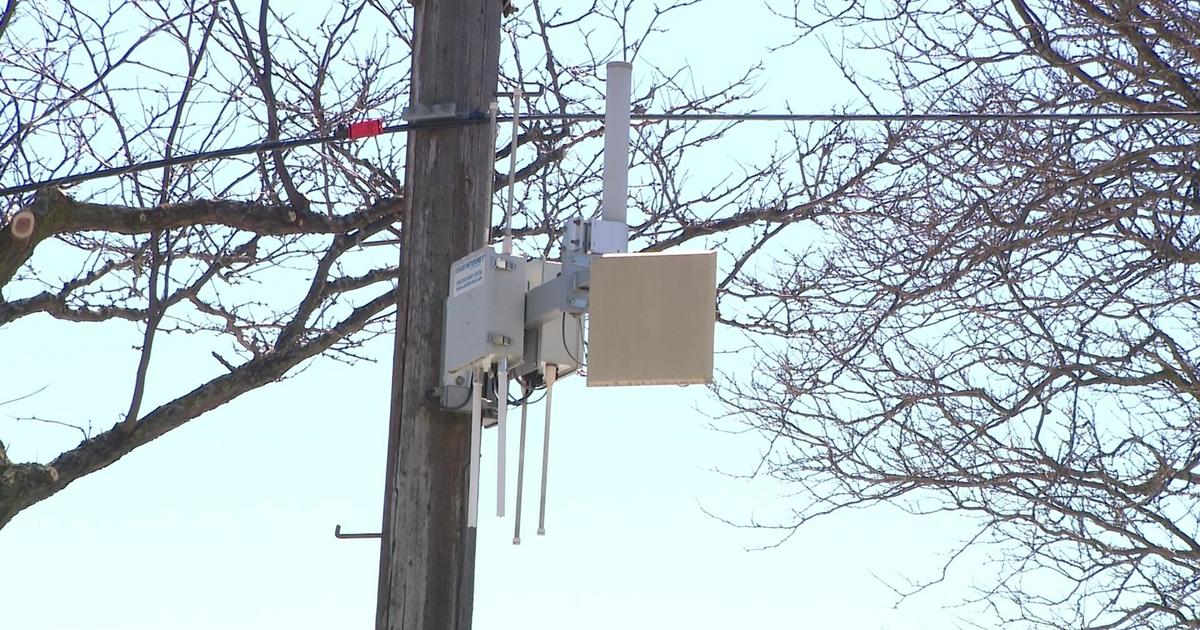Long-Stalled Plan To Create Database For CPD Misconduct Files Set For Committee Hearing On Friday
CHICAGO (CBS) -- After months of delays, aldermen appear poised to vote on an ordinance that would require the city to create a public database of closed Chicago Police Department misconduct files dating as far back as 1994.
Ald. Scott Waguespack (32nd), who chairs the City Council Finance Committee, introduced the proposal last September to require the Inspector General's office to create "a user friendly, publicly accessible and searchable digital repository" of CPD's closed misconduct complaints.
The proposal from Waguespack and Public Safety Committee Chair Ald. Chris Taliaferro (29th) came after a proposal to settle a lawsuit that sought to force the city to release more than 50 years' worth of CPD misconduct records stalled in City Council.
The CPD misconduct database ordinance has gone nowhere for months, but is now scheduled for a hearing by the Finance and Public Safety committees on Friday, after undergoing a major re-write.
The original proposal would have required the Inspector General's office to make all closed CPD misconduct files available on the database, but did not set out a timeline for when it must be done.
According to a copy of the revised ordinance obtained by CBS 2, the Inspector General's office now would be required to make all closed misconduct files dating back to 2000 available on the database within one year of when the ordinance takes effect, and all misconduct files dating back to 1994 available within two years.
After that, the Inspector General's office would be required to determine the feasibility of publishing closed CPD misconduct files dating back before 1994.
"If such publication is feasible, OIG shall propose a timeline for publication," the ordinance states.
For future CPD misconduct files, the Inspector General's office would be required to publish them to the database no later than 30 days after a disciplinary investigation is completed.
Published misconduct files would have to include log numbers, misconduct complaints, the names of each accused officer, the name of the investigating agency, the final disciplinary decision or other final disposition of the case, and any other information the Inspector General's deputy for public safety deems of public value.
The Inspector General's office also would be required to provide semiannual progress reports on the misconduct database.
The City Council's push for a public CPD misconduct database stems from the city's effort to settle a lawsuit filed by Charles Green, who was convicted in a 1985 quadruple homicide, but claims he was wrongfully convicted.
Green filed a FOIA request for all Chicago Police misconduct records in cases that have been closed dating back to 1967. Green then sued for the records after the city failed to respond to that FOIA.
Green was released from prison in 2009 after a judge ruled critical victim testimony was not allowed at his trial. Green's fight to prove his innocence included filing a Freedom of Information Act request, or FOIA, for all Chicago Police misconduct records in cases that have been closed dating back to 1967. Green then sued for the records after the city failed to respond to that FOIA, as required by law.
Last year, a Cook County Judge ruled the city had "willfully and intentionally failed to comply" with FOIA requirements, and ordered the city to turn over all the files Green had requested by the end of 2020. The city already has turned over misconduct files dating back to 2011.
However, as part of a proposed settlement with the city, while Green would have received $500,000 in damages, he would have given up his right to the files dating back to 1967.
Last July, aldermen balked at approving that settlement, demanding the city establish a database of CPD misconduct files.
At the time, city attorneys told aldermen it would take 10 years and cost $10 million to release all of the misconduct files Green had been seeking.
It's unclear how much the database proposed in Waguespack's ordinance would cost, but the measure would require the city to provide the Inspector General's office with any budget allocations "as are necessary to support the creation and maintenance" of the database.
If approved by the Finance and Public Safety committees on Friday, the database ordinance could get a vote by the full City Council next week.



